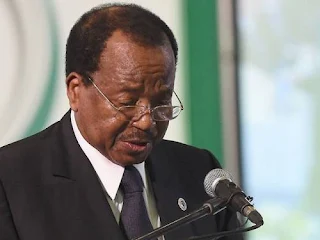In his apparent bid to strengthen the ongoing
war against graft and allied matters, on Monday 8th October 2018,
President Muhammadu Buhari graciously endorsed a new executive order.
The
order, which is tagged Voluntary Offshore Assets Regularization Scheme (VOARS),
is targeted to tackle money laundering and tax evasion taking place within the
shores of Nigeria. Similarly, it’s branded “Executive Order 8”, perhaps in
accordance with the total number of orders recognized thus far by the
government.
First,
we need to painstakingly comprehend the real meaning of an executive order and
its essence. An executive order is a directive issued by the president that
manages the affairs of a federal government and which automatically possesses
the force of law. It originated from the United States of America (U.S.A).
The
major difference between a law and an executive order comes in how they are
made. The former is required to go through the entire legislative process; it
suffices to say that it must be approved by both chambers of the legislature
and duly endorsed by the sitting president. By contrast, the latter does not
have to pass through any of these procedures.
The legislative council isn’t meant to
approve any executive order, nor can it overturn it. The worst it can do if
it’s not pleased by the order, is to pass a law to cut funding for its
implementation. But even then, the president has the constitutional power to
veto such a proposed defunding law.
Executive
orders are legally binding directives given by the president – as the head of
the Executive Arm – to federal administrative agencies. They are generally used
to direct the entities and its officials in their day-to-day thrive towards
upholding the laws binding them, hence aimed at strengthening the viability of
the affected laws, Acts or policies.
Fundamentally, an executive order is an
official statement from the president about how the federal agencies he
oversees are to use the resources and powers within their ambit. It falls under
the broader umbrella of executive actions, which derive their power from the
constitution, and it is the most formal executive action.
It’s therefore needless to state that the
Nigeria’s 1999 Constitution, as amended, explicitly assigned the President the
power to sign or veto the outcome of any legislation, command the country’s
armed forces and other security apparatus, ask for the written opinion of any
of his cabinet members when need be, convene or adjourn any Federal Executive
Council (FEC) meeting, grant reprieves and pardons as well as receive
ambassadors.
It’s
noteworthy that orders from any court of competent jurisdiction constitutionally
become binding and enforceable as law by the concerned court. In the same vein,
in some circumstances, orders issued by any serving president equally carry the
force of law. Hence, an executive order is deemed necessary when extant laws or
policies become seemingly docile or inactive.
According to the Senior Special Assistant to
President Buhari, Mr. Garba Shehu, by the Executive Order 8, Nigerian taxpayers
who hold offshore assets and incomes are expected to – within a period of twelve
months from the date it was endorsed – declare voluntarily those assets and pay
accruable taxes on them. “When they do so, they should expect to derive certain
specified benefits”.
He as well clarified that any taxpayer who
takes advantage of this privilege would pay only a one-time levy of 35 percent
on the total offshore assets and income as well as obtain immunity from
prosecution for tax offences and violations related to offshore assets, among
others.
Offshore assets are investment
strategies domiciled outside the investor’s home country. They are assets or
monies being kept in a territory other than one’s country of residence. Poorly
regulated offshore domiciles historically have served as havens for money
laundering, tax evasion, or to conceal illicitly acquired assets from law
enforcement bodies in the investor’s country.
Mr. Shehu further hinted that failure of any
defaulting taxpayer to comply with the 12-month privilege shall at the
expiration of the scheme result in investigation and enforcement procedures
concerning offshore assets anywhere in the world “pursuant to information now
readily available through automatic exchange of information between Nigeria and
foreign countries”.
To assert that this newly signed order –
likewise other allied ones earlier introduced – is a welcome development, is an
understatement. It’s only a dummy that’s yet to realize that the two factors
affected by the Executive Order 8 have overtime bedevilled the Nigeria’s
economy.
Aside
the fact that most individuals or entities who launder money cum other
belongings are usually criminals, hence do so in order to conceal their
ill-gotten wealth, those who genuinely acquired theirs have from the onset
succeeded in not paying the taxes accruable to the assets involved. In other
words, the latter equally deserved to be regarded as criminals.
It’s on this premise I enjoin the Buhari-led
government to tighten its seatbelt towards ensuring that this very order is
given all the supports it requires. We can’t continue to beat about the bush
when we are fully not unaware of the origin cum basis of our lingering economic
plights.
The judiciary on its part must be
helpful in ensuring that the prime purpose of the order is actualized. No one
ought to sit on the fence while we are fighting a monster that’s ravaging our
common patrimony. Think about it!
Comrade Nwaoozr, a policy analyst
& rights activist,
could be reached via frednwaozor@gmail.com
Twitter: @mediambassador













